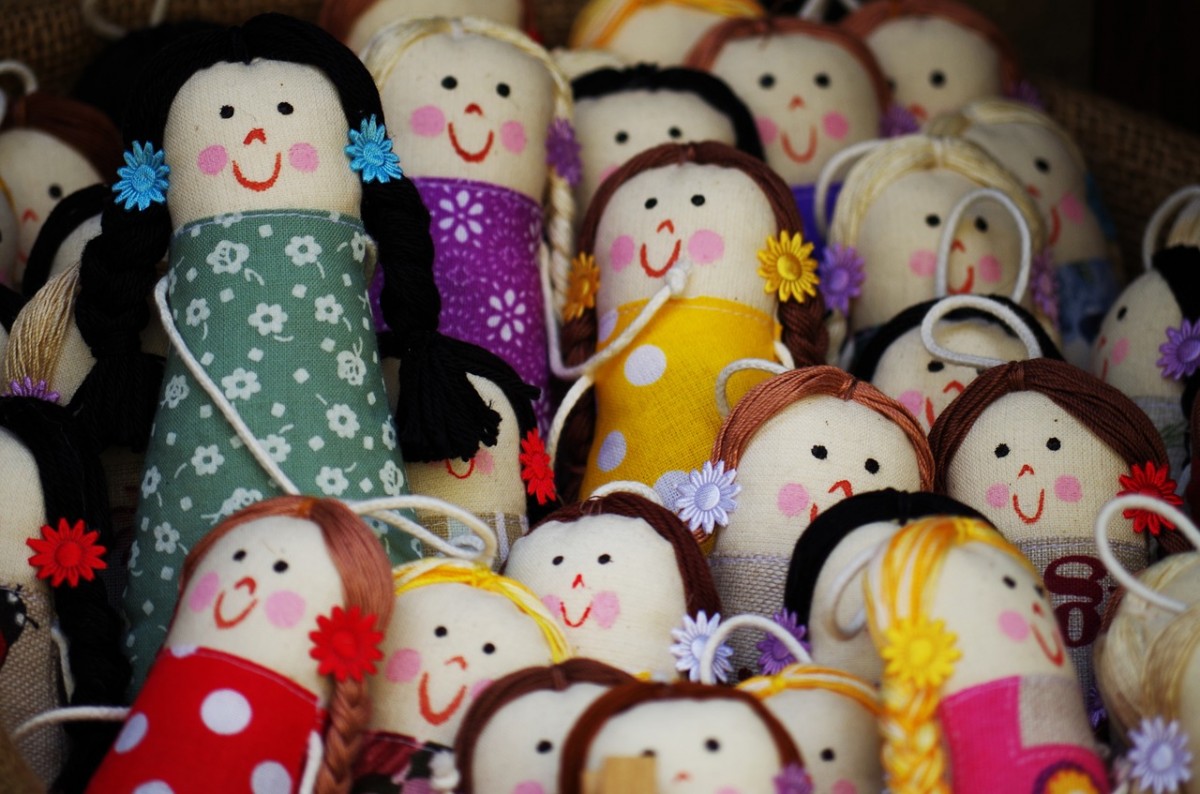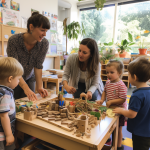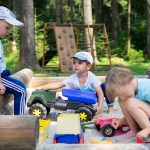Have you heard of what deconstructed role play is?
Recently the term deconstructed role play is becoming more popular with early years workers but what does it actually entail? Traditional role play areas are often themed and inspired by adults, for example, a vets, supermarket or garden centre, however, many are now arguing that these areas are not as enabling as once, thought. This is because they have become very adult led areas as many children have never been to a vet, children don’t buy their own groceries, and they don’t buy their own flowers. They have become areas that instead of enhancing the imagination are now beginning to place restrictions on the imagination, and instead of allowing children to make sense of the world around them it is only allowing them to explore small snippets they have experienced or understood from role modelling the adult’s language while in the role play area. It is upon discovering this that many are now choosing to create a deconstructed role play area.
What resources do I need?
A deconstructed role play area is not the most pleasing to the adult’s eye, however, it really allows children to use their imagination and explore without limits. Many move or loose the standard kitchen role play units and instead fill an area of the room with clothes horses or washing lines (perfect for den building and creating any role play the children desire and can do by themselves) empty shelves for enhancement boxes and resources such as:
· Boxes – large and small
· Fabrics – Great for den building
· Tubes
· Crates
· Gift bags
· Pegs
· Large paper, clipboards and pens – For children to create and document their experiences.
Many settings choose to create ‘enhancement boxes’ to support any particular interests, these are then added to the role play area. Enhancement boxes might include:
· Dolls – Some children may have younger siblings or a baby born into the family. The dolls, bottles and some nappies may then be placed in the deconstructed role play area to enhance the interests and learning.
· Tea party pieces – If the children are showing a keen interest in making their own home corners using the open-ended materials you may choose to add a box containing plates, cups, small amount of food etc…
· Supermarket Resources – If the children are making the resources into their own supermarket you may like to add a till, some pretend money etc…
What are the benefits of deconstructed role play areas?
Deconstructed role play allows children to fully engage in the experiences without there being no limitations placed on their imaginations. It creates a language rich learning space where children can interact with one another sharing ideas and developing their own play scenarios. Children can make sense of the world around them by exploring and investigating things that are current, relevant and interests them.
What are your views on deconstructed role play?



‘Traditional role play areas are often themed and inspired by adults, for example, a vets, supermarket or garden centre, however, many are now arguing that these areas are not as enabling as once, thought.’
I find the above statement so powerful ‘traditional role play is inspired by adults’ who believe and think they know what (another person) children would like to engage in. I often upon reflection question how would we as Early Childhood professional feels if we arrived to work or our home and some other person had set up our space on a theme they thought we would enjoy, engage or further develop our skills and enhance our development. If an opportunity is provided for us to engage in and create, then I ask is it the adults right to decide and choose when to change it? If I constructed it does this mean that I have the right to deconstruct or others who have a vision of where to go to from there? Do the rules, understanding change when it is shared spaces? Who decides all this?
I also find it fascinating with the terminology we use which is still ‘traditional’ eg. ‘home corner’ which originally represented a kitchen and evolved to other spaces, Are we referring to ‘living spaces’ which is a little more inclusive. Are there better ways we may refer to these spaces? If so, what may we call them?
We refer to spaces changing as deconstructing, interesting term. Is it deconstructing or reconstructing (reusing, recreating, evolving etc.)? I wonder and challenge my way of thinking and choice of words. Often some of the greatest ideas and outcomes in my life is when I have gone back and reconstructed an original idea which evolved over time.
It is lovely to see children are being given the opportunity entitled to them. To be children! To discover, imagine, create and enjoy the world around them. Getting back to basics, love it ?
I totally get this. Adult themes become very prescriptive and limiting. Like it says many children have yet to experience particular scenarios. They will only make sense if linked to ongoing adult led work and modelling.
This is the same as ‘loose parts’ in playwork. We have been doing this for years.
Makes sense especially as it is child led can also flag up gaps in their learning.
Yes I totally agree. We began deconstructing our home corner/role play areas summer last year. They are now three times as popular as when they were adult initiated vets, hairdresser’s, shop’s and office’s etc ?